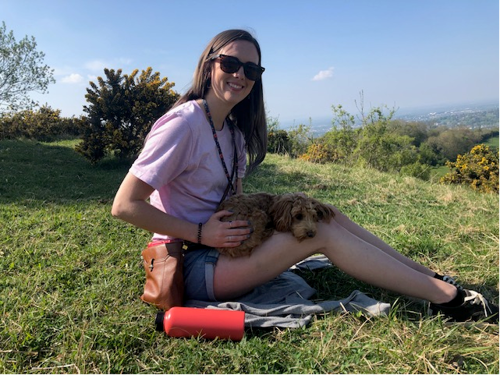‘Our People’ is a regular feature, focusing on our staff and the work we do every day to help keep the nuclear industry safe and secure. It aims to bring our jobs to life while increasing understanding of our role among key stakeholders.
Today, we learn more about Alix Davies, one of our nuclear safety inspectors working in our human factors team within the Operating Facilities Division.
Alix joined the Office for Nuclear Regulation (ONR) last year having worked in the human factors team at EDF for eight years after graduating from the University of Bournemouth with a degree in psychology in 2013.
The scientific discipline of human factors studies how people interact with their environment, tasks, tools, and systems and Alix’s degree background has proved highly beneficial when working within this important specialism.
Nuclear installations are highly complex systems where people play an essential role in maintaining safe and reliable operations. To this end, ONR’s human factors experts consider the roles people play here and the contributions they make to nuclear safety.
The job requires knowledge about human capabilities (psychological and physiological) as well as the tasks required, and the organisational and cultural factors which can impact on someone’s performance.
In the context of nuclear safety, the science of human factors underpins the design, commissioning, operation, and decommissioning of all nuclear facilities.

Alix said: “I’m delighted to be working for ONR and to apply my human factors knowledge to have a positive influence on nuclear safety and operations.
“Human factors within the nuclear industry are integral to protecting workers and the public against any associated risks, highlighted by past historical events and the human contribution to these.
“Our application of human factors involves a broad range of essential activities including analysing tasks important to nuclear safety, running simulations, designing equipment and carrying out workload analysis.
“My role is very varied, and so are the dutyholders I engage with. A typical day might involve reviewing a dutyholder’s submission (for example, for a modification to a power plant or a new safety case) to understand the key risks and the human contribution to managing this.
“Another day could be travelling to a nuclear site to conduct a human factors inspection and providing the dutyholder with constructive challenge and guidance. This is something I really enjoy as it has a clear positive impact on nuclear safety.
“When I’m not interacting with dutyholders, I might be attending internal human factors meetings, updating our Technical Assessment Guides to ensure they reflect the latest relevant good practice or writing a scope for a piece of research.

“Working at ONR has given me the opportunity to broaden my human factors knowledge and apply it in a meaningful way to achieve high hazard and risk reduction.
“One of the most stimulating aspects of my role is the collaborative working environment which often involves multi-disciplinary teams on a project. There are always experienced inspectors on hand to discuss challenges and regulatory decisions with. I also find it really rewarding knowing that what we do is of national importance and helps to keep the public safe.”
Outside of work, Alix likes spending time with her dog, Piper, on walks in the countryside or training for dog agility, which also gives her the perfect excuse to stop and enjoy some food and drink at one of Cheltenham's rural pubs on the way back home.
Alix also attends spin and yoga classes and enjoys the occasional horse riding hack.